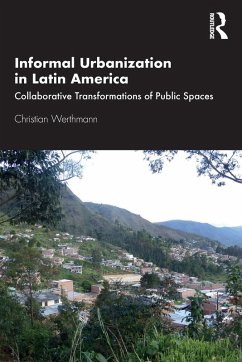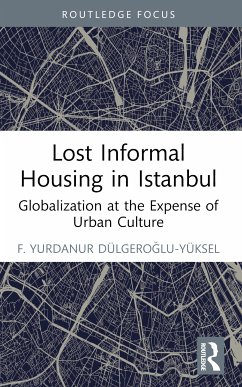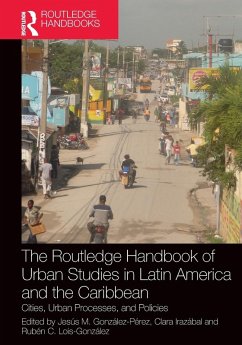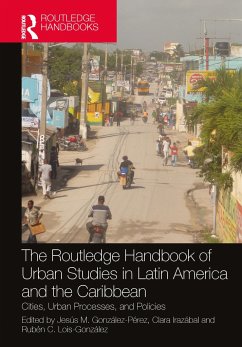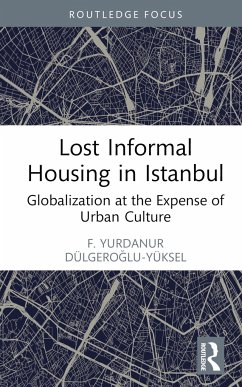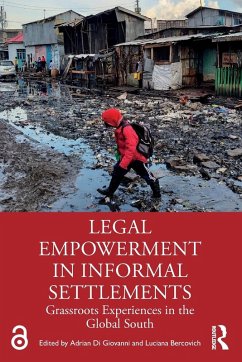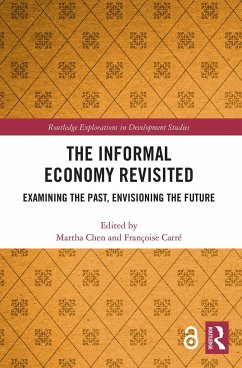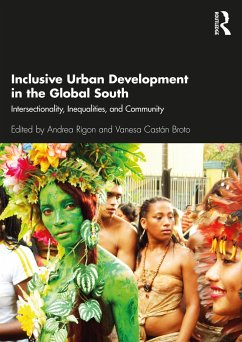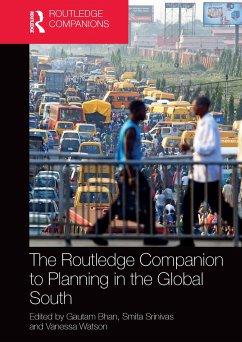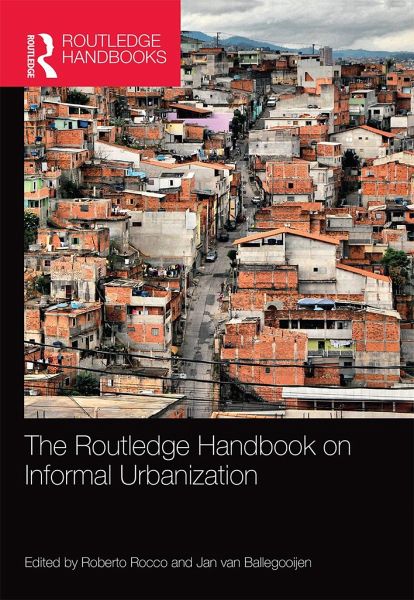
The Routledge Handbook on Informal Urbanization
Versandkostenfrei!
Versandfertig in 6-10 Tagen
49,99 €
inkl. MwSt.

PAYBACK Punkte
25 °P sammeln!
The Routledge Handbook on Informal Urbanization investigates the mutual relationship between the struggle for political inclusion and processes of informal urbanization in different socio-political and cultural settings.It seeks a middle ground between two opposing perspectives on the political meaning of urban informality. The first, the 'emancipatory perspective', frames urban informality as a practice that fosters autonomy, entrepreneurship and social mobility. The other perspective, more critical, sees informality predominantly as a result of political exclusion, inequality, and poverty. D...
The Routledge Handbook on Informal Urbanization investigates the mutual relationship between the struggle for political inclusion and processes of informal urbanization in different socio-political and cultural settings.
It seeks a middle ground between two opposing perspectives on the political meaning of urban informality. The first, the 'emancipatory perspective', frames urban informality as a practice that fosters autonomy, entrepreneurship and social mobility. The other perspective, more critical, sees informality predominantly as a result of political exclusion, inequality, and poverty. Do we see urban informality as a fertile breeding ground for bottom-up democracy and more political participation? Or is urban informality indeed merely the result of a democratic deficit caused by governing autocratic elites and ineffective bureaucracies?
This book displays a wide variety of political practices and narratives around these positions based on narratives conceived upon specific case cities. It investigates how processes of urbanization are politicized in countries in the Global South and in transition economies.
The handbook explores 24 cities in the Global South, as well as examples from Eastern Europe and East Asia, with contributions written by a global group of scholars familiar with the cases (often local scholars working in the cities analyzed) who offer unique insight on how informal urbanization can be interpreted in different contexts. These contributions engage the extreme urban environments under scrutiny which are likely to be the new laboratories of 21st-century democracy. It is vital reading for scholars, practitioners, and activists engaged in informal urbanization.
It seeks a middle ground between two opposing perspectives on the political meaning of urban informality. The first, the 'emancipatory perspective', frames urban informality as a practice that fosters autonomy, entrepreneurship and social mobility. The other perspective, more critical, sees informality predominantly as a result of political exclusion, inequality, and poverty. Do we see urban informality as a fertile breeding ground for bottom-up democracy and more political participation? Or is urban informality indeed merely the result of a democratic deficit caused by governing autocratic elites and ineffective bureaucracies?
This book displays a wide variety of political practices and narratives around these positions based on narratives conceived upon specific case cities. It investigates how processes of urbanization are politicized in countries in the Global South and in transition economies.
The handbook explores 24 cities in the Global South, as well as examples from Eastern Europe and East Asia, with contributions written by a global group of scholars familiar with the cases (often local scholars working in the cities analyzed) who offer unique insight on how informal urbanization can be interpreted in different contexts. These contributions engage the extreme urban environments under scrutiny which are likely to be the new laboratories of 21st-century democracy. It is vital reading for scholars, practitioners, and activists engaged in informal urbanization.





